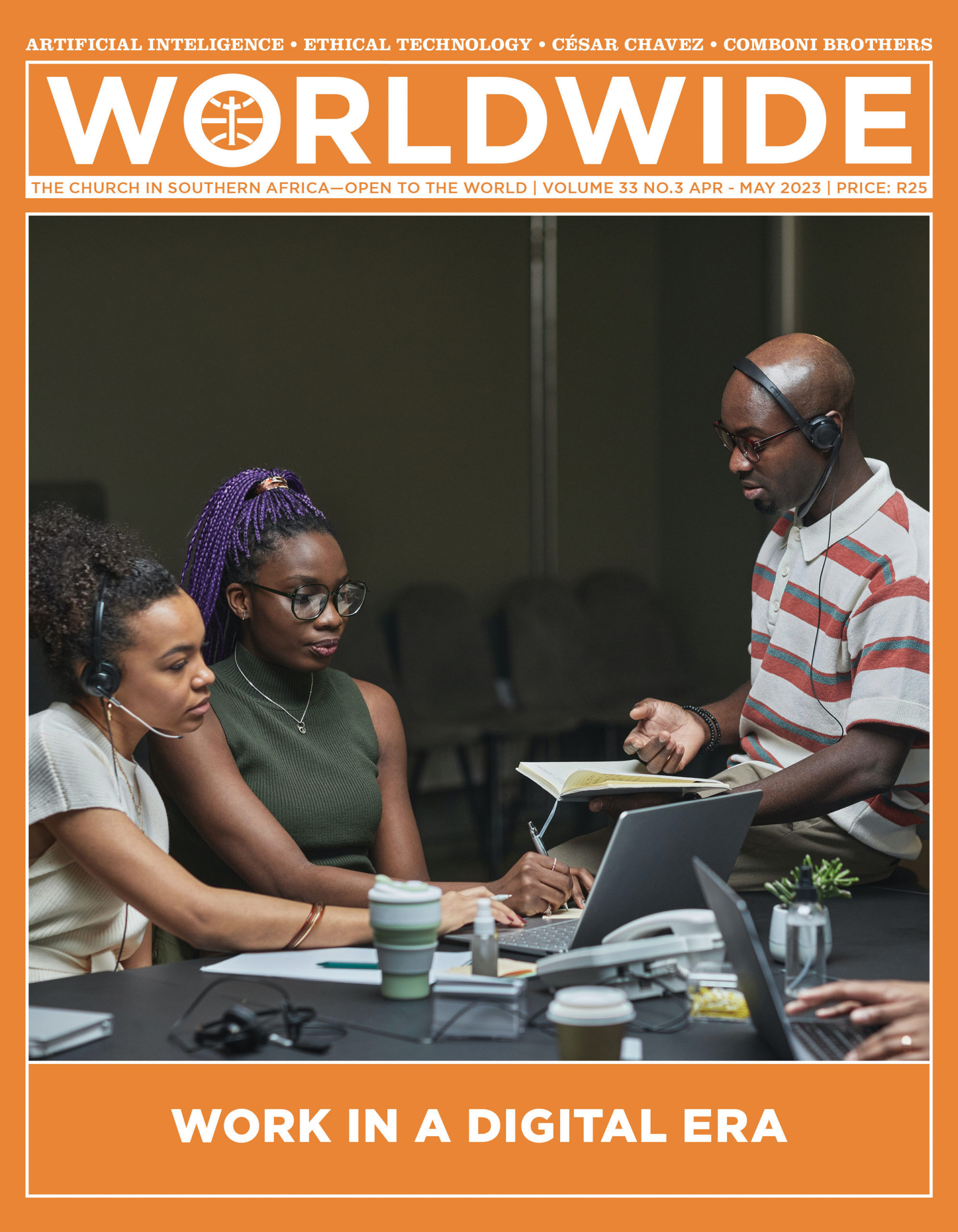
WORK IN A DIGITAL ERA
In the image we see a group of work colleagues discussing and planning their activities. They seem to have fun and an amicable relationship. The future of work passes through team work and co-operation in a spirit of mutual collaboration.
FRONTIERS • ST MICHAEL’S HOSPITAL, CHAD
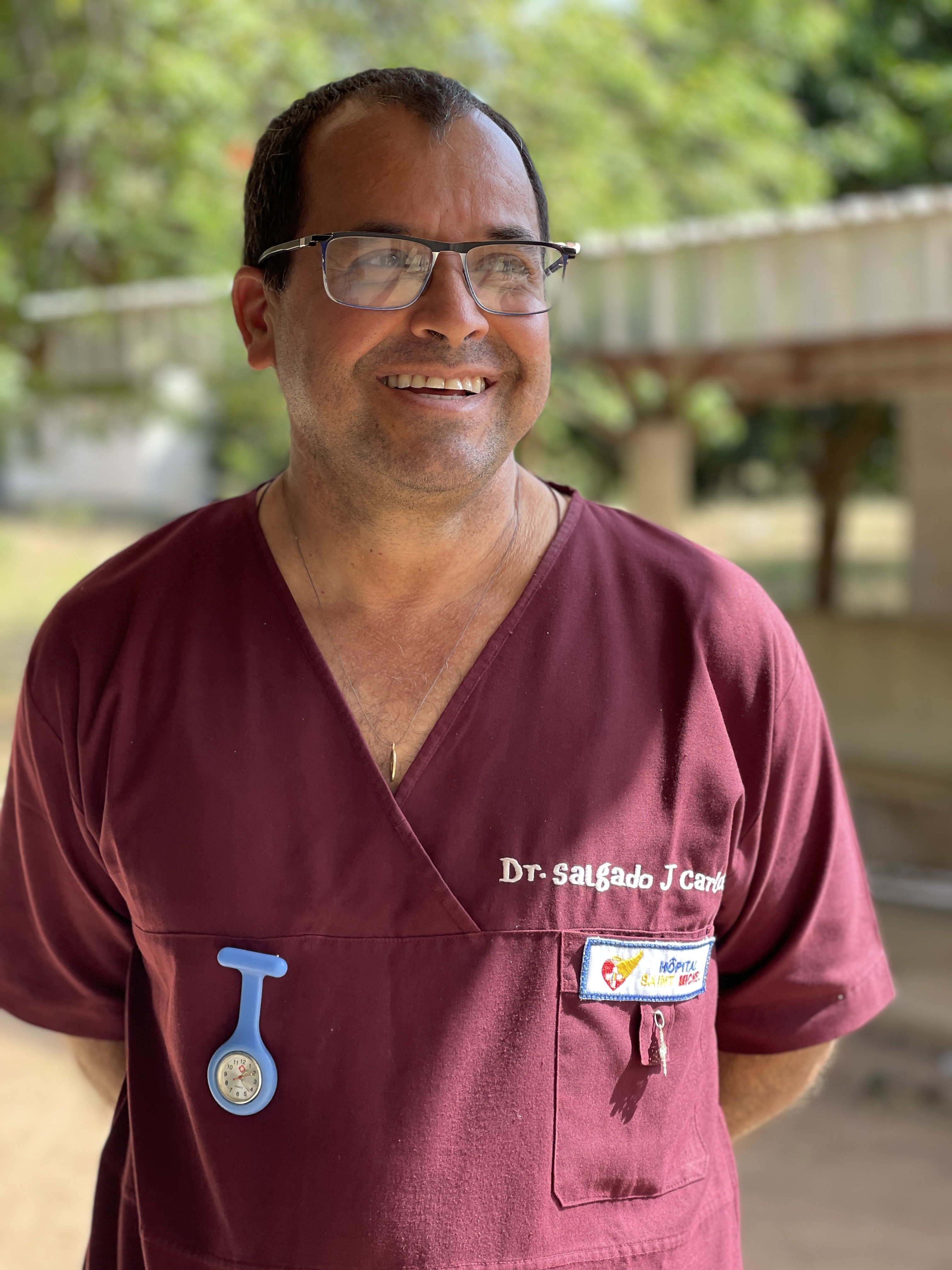
PROMOTING INTEGRAL HEALTH
At St Michael’s Hospital in Donomanga, Chad, a team of health professionals, coordinated by the Mexican Comboni Missionary Brother and medical doctor, Juan Carlos Salgado, does everything possible to ensure that patients are treated with respect and professionalism, healing them and helping them to have hope
BY BRO. BERNARDINO FRUTUOSO | MCCJ
WE LEFT Laï, in the south of Chad, at six o’clock in the morning, while it was still dawn. We were travelling to Donomanga, a small town 80 km away, where we were going to see the work done at St Michael’s Hospital. The institution belongs to the diocese of Laï and is part of the network of health services run by the local Caritas.
The heavy rainy season had just ended and caused a lot of damage to the dirt road. Our driver zigzagged the car with skill and speed, trying to avoid the big potholes which the rain and other vehicles had opened in the road. We passed groups of villagers on motorbikes, bicycles, trucks—used as passenger transport—or ox carts.
“With my service, I do everything I can to make people healthy and happy”
Along the roadside, villagers, mostly women and children, carry buckets and basins with water that they collect from the communal well and the firewood they use for cooking. Some children walk to school, which runs from Monday to Saturday, from 07:30–12:00 under a scorching sun, as the temperature starts to rise and soon exceeds 35°C. Everyone has to breathe the dust that rises in large dark clouds as motor vehicles pass by.
In this southern part of the country, rich in arable land and with great agricultural potential, rice and cotton plantations stretch across the horizon. We also pass herds of cattle on the roads.
Serving the sick with joy
After a bumpy three-hour drive, we pass through the main gate of St Michael’s hospital. The first thing we see are groups of people sitting in the shade under leafy trees. Others occupy the corridors outside the various wards. “It is the patients’ families who take care of them. Each family takes responsibility for their patient, cooks for them and keeps a close eye on their health,” explains Brother Juan Carlos Salgado, a Comboni missionary and the only doctor practising in these facilities.
Sister Angela, a Mexican nurse who has been in Chad since 2008, belongs to the congregation of the Daughters of the Sacred Heart of Jesus. She collaborates with the administration of the hospital and takes us on a tour of the facilities. She tells us that the hospital has a capacity for 70 inpatients, divided between paediatrics, maternity, general medicine and infectious diseases. The hospital serves 10 000 patients and is the only one for the 111 538 inhabitants of the Donomanga district.
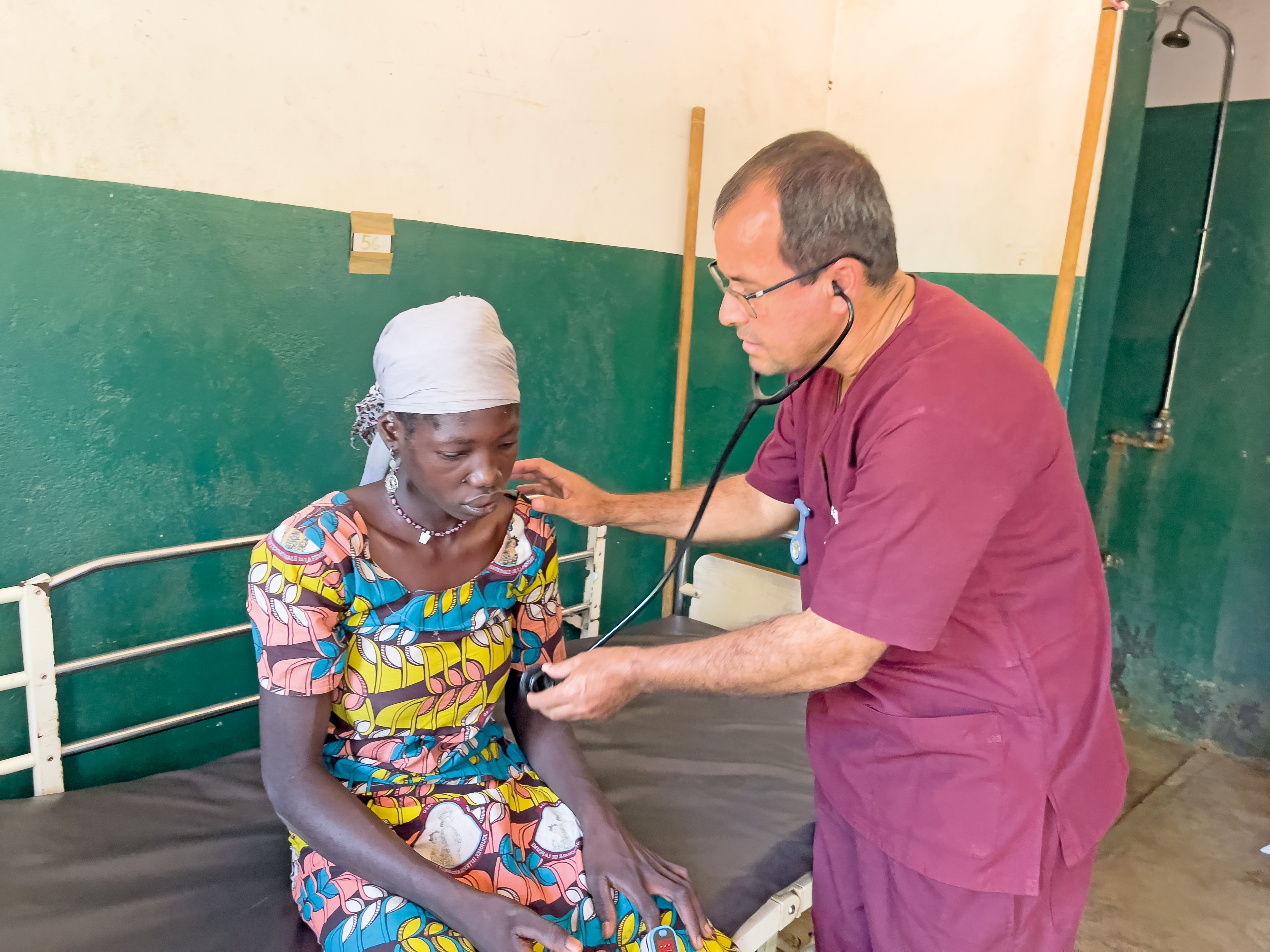
Maria Oralia, also Mexican and who arrived in Chad just over a year ago, tells us that the logistics of storing the medicines were demanding and complicated, as there is no public electricity service and they had to use a diesel generator and batteries. However, “this task is now easier”, she says with a smile, “because a few days ago 24 solar panels were installed and guarantee energy throughout the day and allow us, for example, to preserve medicines which need low temperatures for storage.”
Bro. Juan Carlos adds that it can be difficult to understand how a hospital can function without energy, but “they have adapted to working with scarce resources”. He says they can now “have a blood bank, keep basic services running for 24 hours and even perform some operations with more peace of mind in case of emergency”. Before, they had to turn on the electric generator hoping it wouldn’t break down.
In the maternity ward, Sister Aurelia, a young nurse originally from Guatemala, has been working at the hospital since 2008 and is responsible for the administration of this wing, the paediatric ward and the operating theatre. With a warm smile, she tells us that she is originally from San Marcos, a region with fairly mild temperatures, but has adapted well to the hot, dry climate of Chad. In the cool mornings of the dry season, she “even has to put on a coat” because she feels cold: night temperatures drop to 14–16°C and Chadians wear thick coats. She stresses that the mission of her institute, founded in Guadalajara, Mexico, by Mother Naty Venegas, the first female Mexican saint, is to serve those who suffer most, the sick, and that she is very happy at Saint Michael’s.
Bro. Juan Carlos worked in the Democratic Republic of Congo as a nurse before coming to Chad
Sr Aurelia tells us that they receive, on average, about 100 parturients a year, often with some kind of complication. “When there are difficult situations that the nurses have not been able to resolve in the village health centres, they send the pregnant women back to the hospital,” she explains. Sr Aurelia enters the room and talks to a woman who had been bitten by a snake and was already being medicated. She asked a man sitting by the door to take out of a jar the small poisonous snake that one of the villagers had killed. She tells us that “if the lady had not been assisted, the poison would soon have spread and she would have died quickly. Snakebites are still frequent in the region, and people are bitten when they work in the fields or the villages”. Sr Aurelia says “Every year, there are about 100 patients who arrive at the hospital in this condition”.
Bro. Juan Carlos attends to a pregnant woman and, shortly afterwards, performs an ultrasound scan to make a better diagnosis, find out about the health of the baby and the mother, and decide what steps to take.
Daily challenges
The hospital, as we have observed, is well organised, although it does not have many staff members, since, including all the employees, only 38 people work there.
When we arrived, Bro. Juan Carlos was in his consulting room attending to the outpatients arriving that day. He says that many people arrive at the hospital already very sick, because “first they resort to local medicines and healers and only after that, if there are no positive results, they come to the hospital”. Many patients arrive already very ill, for example, with major infections resulting from accidents or injuries with knives, machetes or weapons, or very advanced diseases. The most common diseases in the region are infectious diseases, namely tuberculosis and malaria, child malnutrition and respiratory diseases. During the rainy season from May to September, malaria frequently affects children and the recovery process is more complicated, as many suffer from severe anaemia.
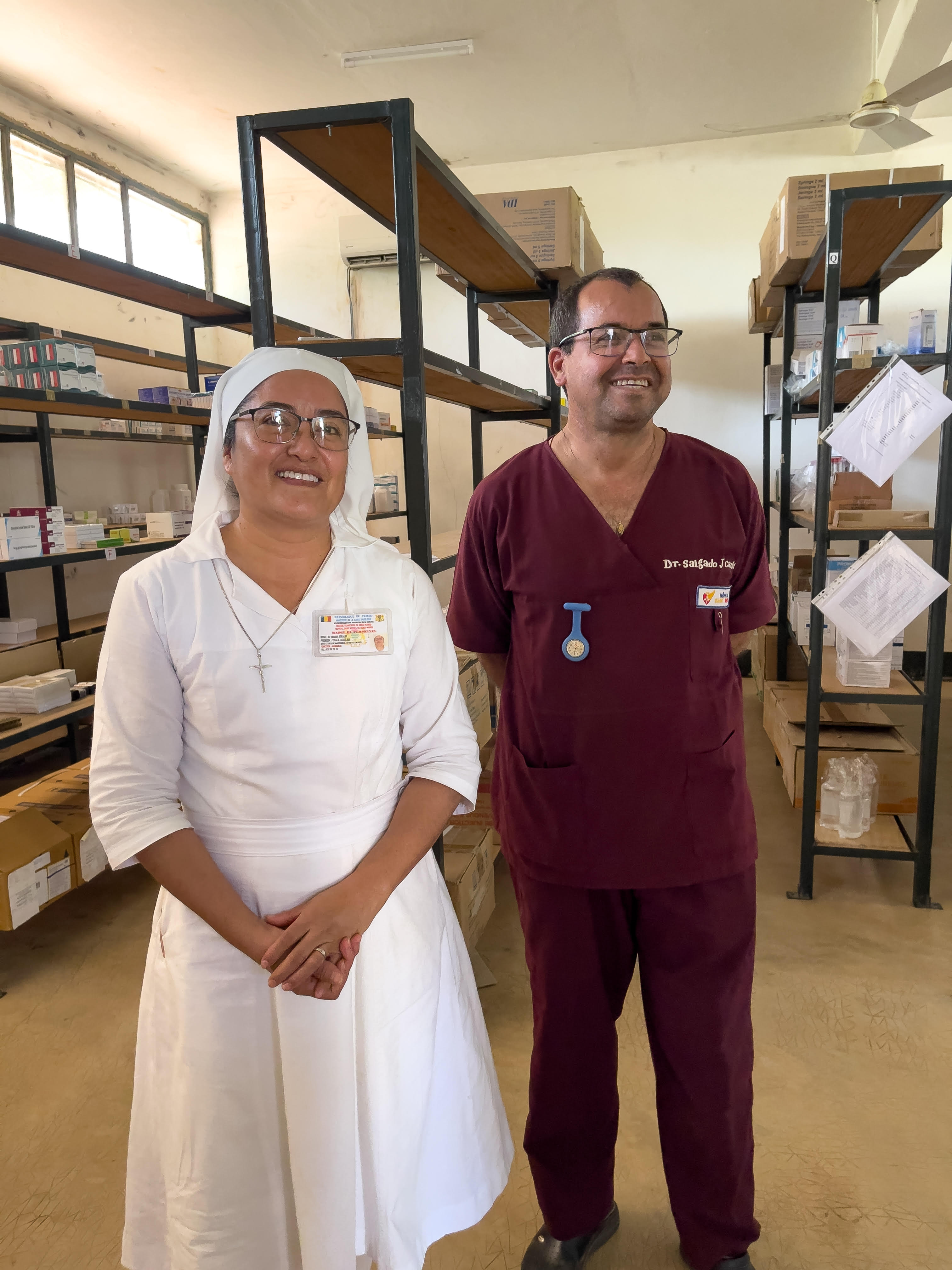
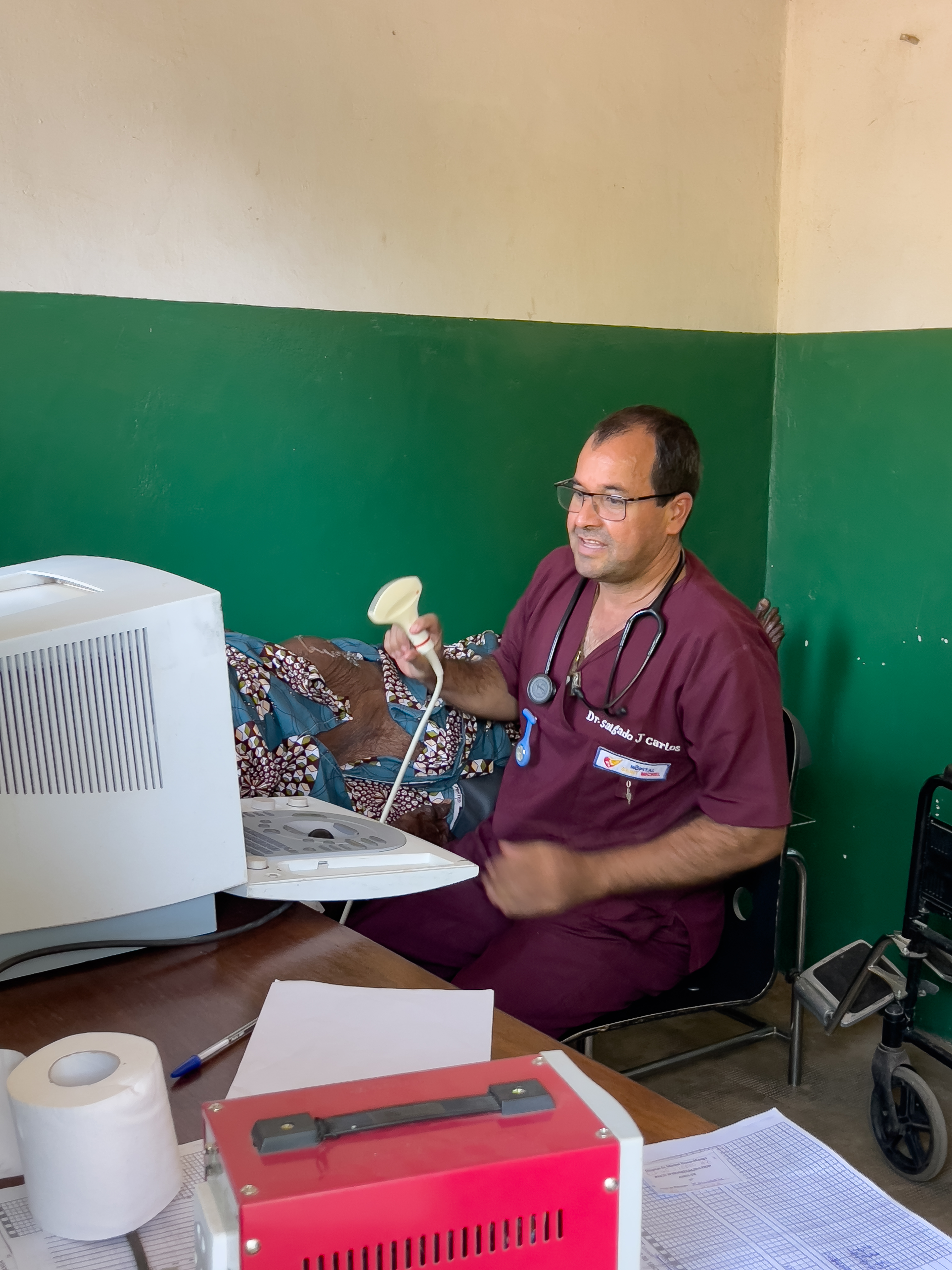
The missionary doctor’s working day starts early with visits to patients in the different wards; it continues with outpatient consultations, ultrasound scans and minor surgeries. “The more complex and time-consuming surgeries are scheduled for Thursday and Friday each week. However, in case of emergency, they are done at any time, even during the night,” explains the missionary. For this, there are two operating theatres, equipped with the essential equipment.
“Everyone is treated with the respect and dignity they deserve. My greatest joy is to see patients going home cured,”
Bro. Juan Carlos worked in the Democratic Republic of Congo as a nurse before coming to Chad. It was only after a few years, in 2003, that he went to study medicine at the University of Gulu in Uganda. When he finished his degree, he returned to Congolese territory and moved to the hospital of the diocese of Wamba, where he co-ordinated and supervised the network of dispensaries. In Chad, for the past two years, he has been carrying out a difficult service, but one that fulfils him as a person, as a missionary brother and as a doctor. He values his work with the sick, the most vulnerable in society, despite not having many human and technical resources.
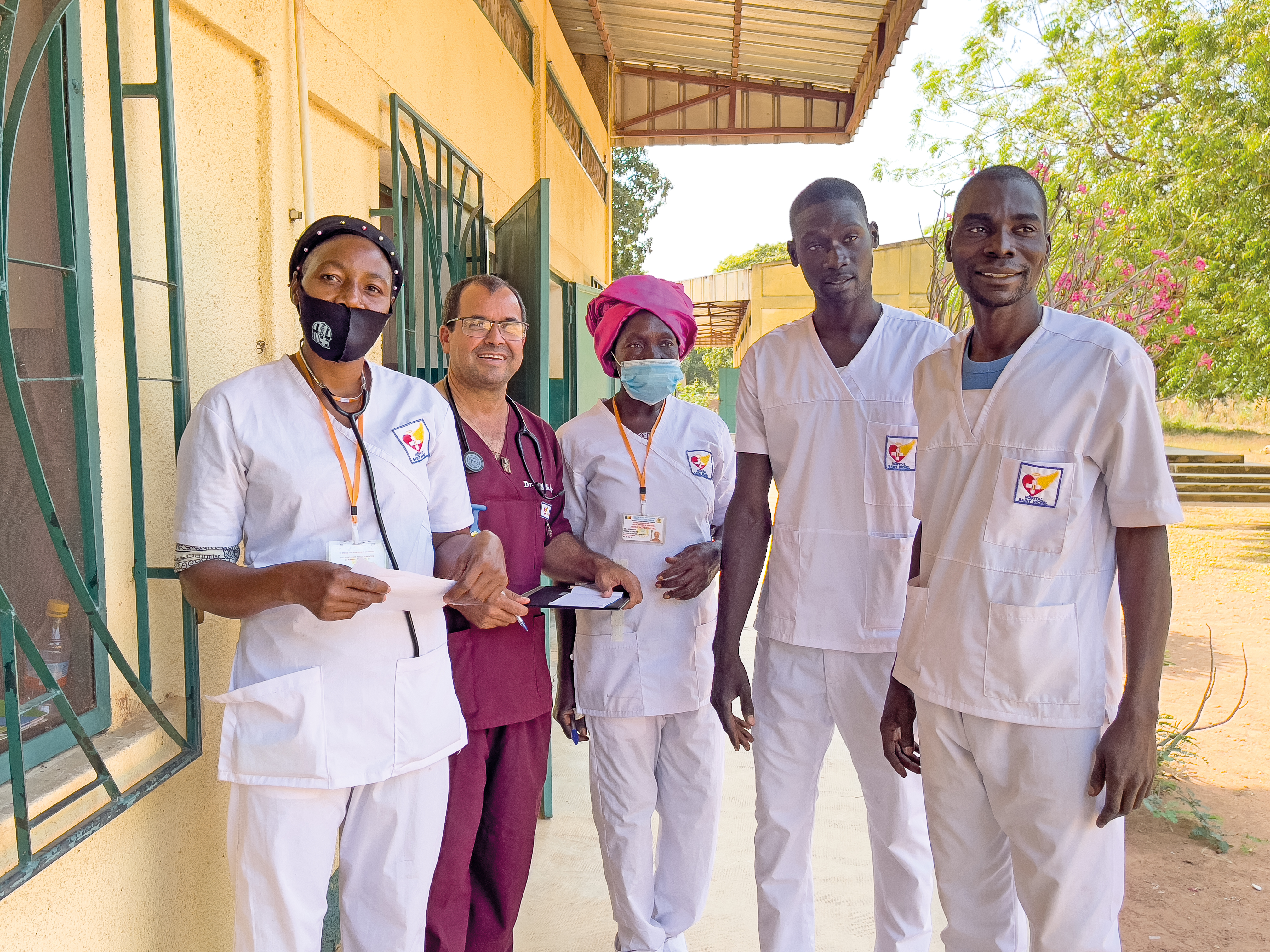
“I am happy to be here. I like the quiet life of the countryside better than the stress and hustle and bustle of the big cities,” he explains. However, working in this remote location has its limitations, drawbacks and challenges. The biggest challenge he faces as a doctor “is the lack of support from other experienced colleagues, with whom I could talk and discuss the more complicated clinical cases”. However, he says that over the years of practise, he has gained “confidence to make decisions” and, whenever possible, he has tried to consult “friendly colleagues using communication platforms, as new technologies allow this teamwork”.
He adds that, despite being in a remote location, this does not prevent solidarity. There is a group of Spanish ophthalmologists who come every year to work, with great dedication, for two weeks as volunteers at the hospital. His dream is to have teams of volunteer doctors from other specialities, especially in oral health, as “this service is practically non-existent in this country”.
He says that when he first arrived in Chad he had difficulty adjusting to the climate and the extreme temperatures. With such an intense workload, it is easy to become dehydrated in this climate, so “I often suffer from kidney stones”. As malaria is endemic, he is also recurrently infected, and this year he has already suffered three characteristic bouts of the disease.
Helping hands of brotherhood and solidarity
Due to the limited resources of the people in the region—most of them are engaged in subsistence farming—consultations and hospitalisation cost very little. As the hospital receives no state funding, finding the funds to keep it running is always a major challenge, requiring ‘creativity and budgetary discipline’.
The hospital serves 10 000 patients and is the only one for the 111 538 inhabitants of the Donomanga district
Among the most urgent needs, Bro. Juan Carlos mentions are an X-ray machine; a unit for sterilising clothes and surgical instruments; a new refrigerator for the blood bank; and repair of the leaking water tank. He adds that “working with limited resources is not easy,” but they have learned to manage them so that “everything works well”. In addition, everyone at the hospital is aware of recycling and minimising waste as much as possible. Bro. Juan Carlos has many projects in mind for the future of the hospital, especially those aimed at ensuring its sustainability. Among these, he mentions the planting of cashew nuts to sell the fruit and the purchase of a tractor to till and cultivate the land owned by the hospital.
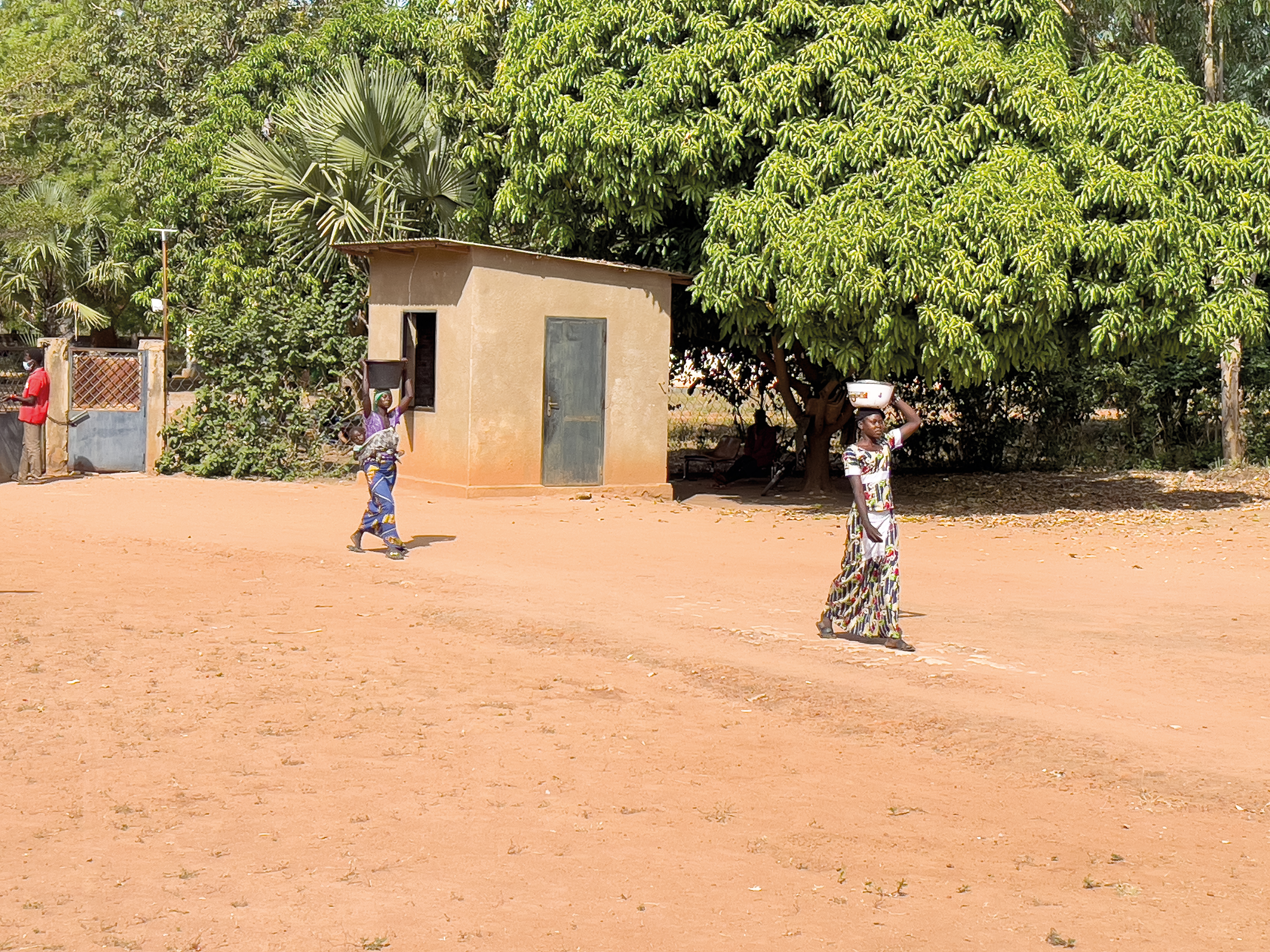
Bro. Juan Carlos’ face shows the serene joy of a life given out of love for God and our most vulnerable brothers and sisters. “With my service, I do everything I can to make people healthy and happy. Everyone is treated with the respect and dignity they deserve. My greatest joy is to see patients going home cured,” he confesses shyly.
The missionary doctor ends his days tired and often stays at the hospital even at night because he has to perform urgent operations. On those occasions, he cannot come back to sleep in the house of his nearby Comboni community, where he shares his life with three priests—from Mexico, Togo and the Central African Republic—dedicated to the pastoral care of the parish of Donomanga and the twelve small rural Christian communities in the area. Despite the difficulties, Bro. Juan Carlos is a fulfilled person, happy for the mission he carries out with his competent, fraternal and supportive hands, which help to give life and hope to the inhabitants of this remote village in Chad.

